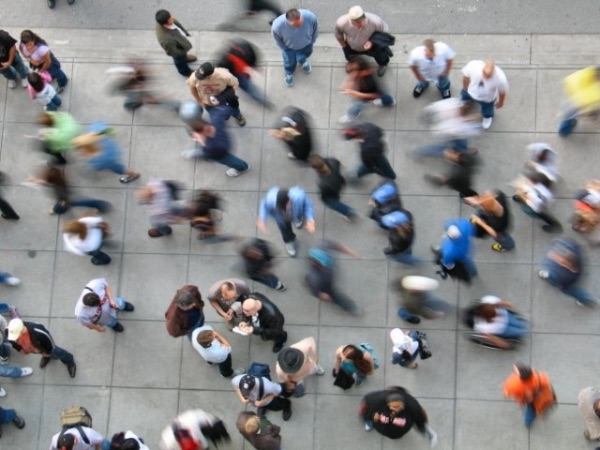Maintaining Balance Through Fasting

The first hour is always the hardest. As someone who is accustomed to having a grand breakfast, a morning that does not start with this routine is definitely a challenge. Overall, in a culture where it’s customary to make sure you eat three meals a day, abstaining from food, even for a day, can seem extreme.
About 40 minutes after I wake up, the stomach growl starts to kick in. At this point, I begin the battle in my head: should I do this today? That yogurt is only a few feet away in the fridge. I rationalize all the reasons why I should start tomorrow. But when I make the decision to push through, I leave the house as quickly as possible so the temptation to eat is curbed by daily tasks.
When I commit to a fast, surprisingly I don’t think about eating as much after the morning has passed. I will work through lunch and it’s around 4 p.m. when I begin to feel it: a slight headache. I use this moment, or any other moment that comes up in the day, to say a prayer to myself. I think of the pain as an externalization of me needing God more than anything else.
Image Credit: Flickr/ Keith Riley- WhittinghamI steady myself and recognize that I made a commitment to do it, so for me to crumble now would mean the whole morning was in vain. I remain grounded and strong. The duration of my fasts are from sunrise to sunset, but I still drink water. My workday ends at 6 p.m., so I head straight home and break my fast with a prayer, followed by a cup of tea before I eat a full dinner.
For me, fasting has been an important spiritual routine that I’ve observed for a couple of years of now. I’ve been a Christian all my life, but I didn’t begin fasting until I got more serious about my Christian walk, which wasn’t until my twenties. I would say that I fast maybe four times a year, sometimes more often, depending on the purpose. Each time it’s extremely hard at the beginning of the day, but by the end, I’m always glad I followed through and always have something to take away from the experience.
I fast to receive clarity from God on decisions that need to be made, but most of the time I fast because I feel I’ve been “over indulging in my flesh.” I strive to live a balanced life, which encompasses living in this world while still setting time aside for spiritual things. It became very hard for me when I started the master’s program at AUP because I had a lot of reading for my courses. It didn’t leave me with much downtime to read anything else, including my Bible. My crazy schedule led me to not pray as much, as I was constantly in a state of going, and add to that the fact that I found myself going out and indulging in France’s culture of wine more often than I'd like to admit.
Image Credit: Flickr/ Sue from OntarioIt’s during these times when I’m caught up in the demands of the world that I begin to feel out of touch with God internally, which can lead me to depressive moods. If I don’t catch myself in what feels like a whirlwind, I will tend to feel worse over time. Therefore, for me, fasting serves as a spiritual reboot. However outside of the spiritual benefits, there are physical benefits to fasting as well.
It has been proven that undergoing a fast can have good effects on your body. Fasting promotes detoxification, as your body has the time to sort through the substances that are there when it’s not preoccupied with digesting new food. Dr. Mark Mattson highlighted in a New York Times article that, from an evolutionary perspective, it’s clear that our ancestors did not eat three meals a day plus snacks. The fact is, we live in a culture of overindulgence, and sometimes it’s necessary to give your body a break from the non-stop consumption process it's undergoing.
Fasting can also take many forms outside of food. For example, I’ve “fasted” from social media on several occasions because I felt I was becoming too engulfed in it. So even though fasting has its origins in religious practice, one does not have to be “religious” to partake in a fast. Fasts are good exercises of self-discipline, which is why I recommend it for everyone. If you want to work on self-control in any area of your life, committing to a fast can help you achieve that goal.









